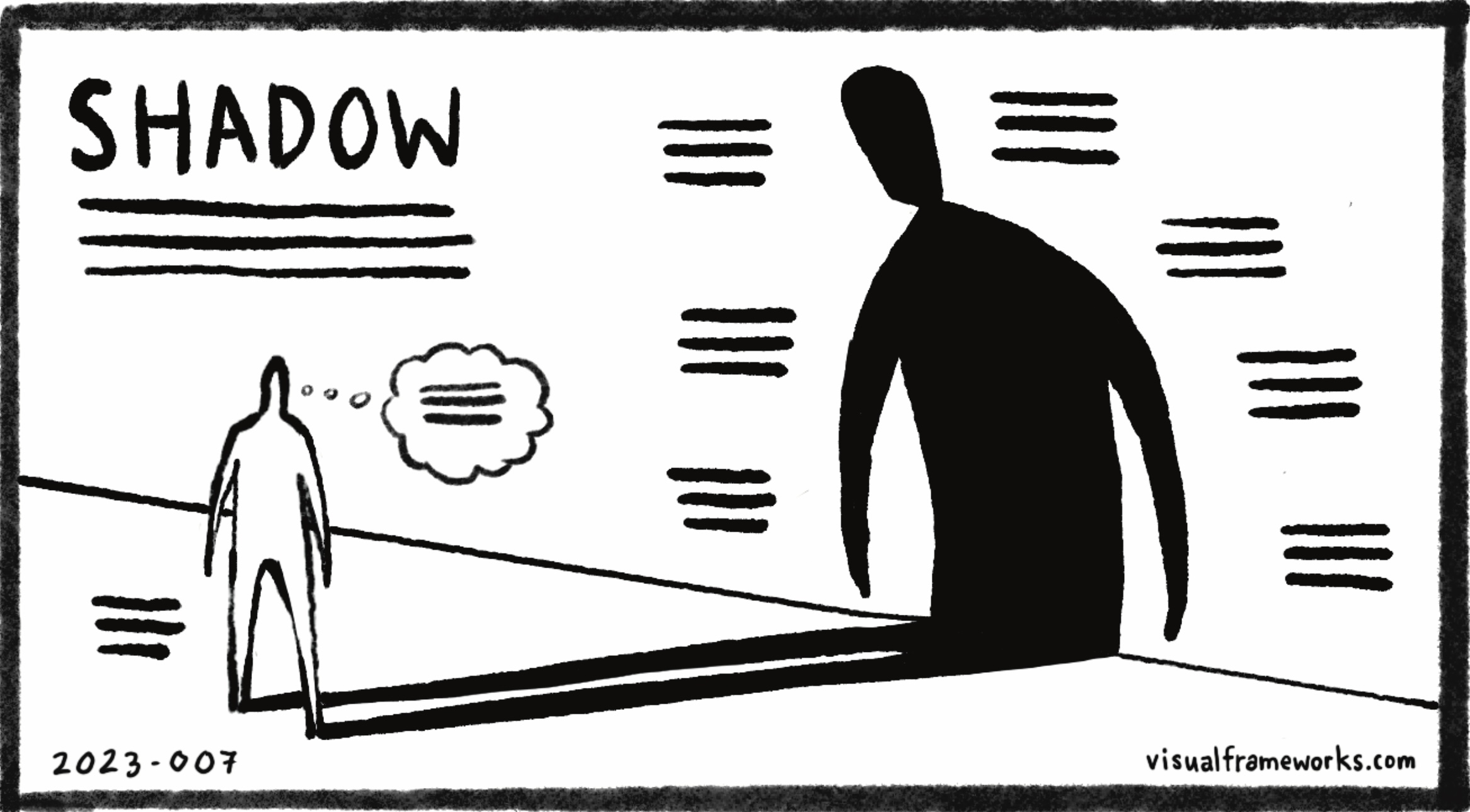A shadow is intangible. It is not made of anything, it is an absence, a negative effect, something that is not there, and yet shadows are real. They are nothing, and yet they are something. A shadow is a negative fact.
Plato told a story about a cave (actually it’s a story about Socrates telling a story about a cave). A group of people are chained to a wall for their entire lives, facing a blank wall, with a fire behind them. All they can see is the shadows projected on the wall. They give names to the shadows and use words to describe what’s going on, but they are still only seeing shadows, not reality. This is a metaphor for the limitations of our physical senses. Plato’s point is that philosophers can escape the cave by reasoning, using tools like mathematics and logic, to escape the cave and perceive reality more clearly.
In Jungian psychology, the shadow is the unconscious part of your psyche that does not correspond to your ideal self: the things you don’t like about yourself, or would prefer not to admit. The shadow is your emotional blind spot, the parts of yourself you are embarrassed about, ashamed of, or even despise. Your shadow self is the self you tend to hide or avoid.
Yet you can’t escape your shadow. It’s always with you. Ignoring or denying your shadow can lead to problems, most especially a distorted view of yourself, which leads to a distorted view of everything else, which in turn leads to bad decisions and negative outcomes.
This self-denial manifests in things like low self-esteem, lying to yourself and to others, anxiety, self-sabotage, an inflated ego, overreacting to criticism and taking things too personally.
So if you can’t ignore it and you can’t get rid of it, what can you do about your shadow?
You can recognize that it’s a natural part of you. Accept your shadow. Make peace with it. You can learn to listen to your unconscious and accept your shadow self. Becoming aware of what’s hidden and nurture the childish, immature, or traumatized parts of yourself, so they can heal and grow.
Your shadow is a projection. Light hitting you from one direction will project your shadow in the opposite direction.
Similarly, when what you see as the negative aspects of your personality are exposed to the light, you will tend to project them onto others. You lash out at others for things you don’t like about yourself.
As Plato wrote, shadows may appear to be real, but they are projections on a cave wall. They should not be confused with reality.
When people say or do things that hurt you, lean in with curiosity.
Is it possible that it;s not about you? Could someone be projecting their own shadow onto you?
Do you know and accept your own shadow, or do you deny it? Is it possible you might be projecting your own shadow onto others?
See also: Lost, Black hole, Hole, Fog, Conflict, Deep dive, Iceberg, Maze, Doom loop, You.
2023-007
